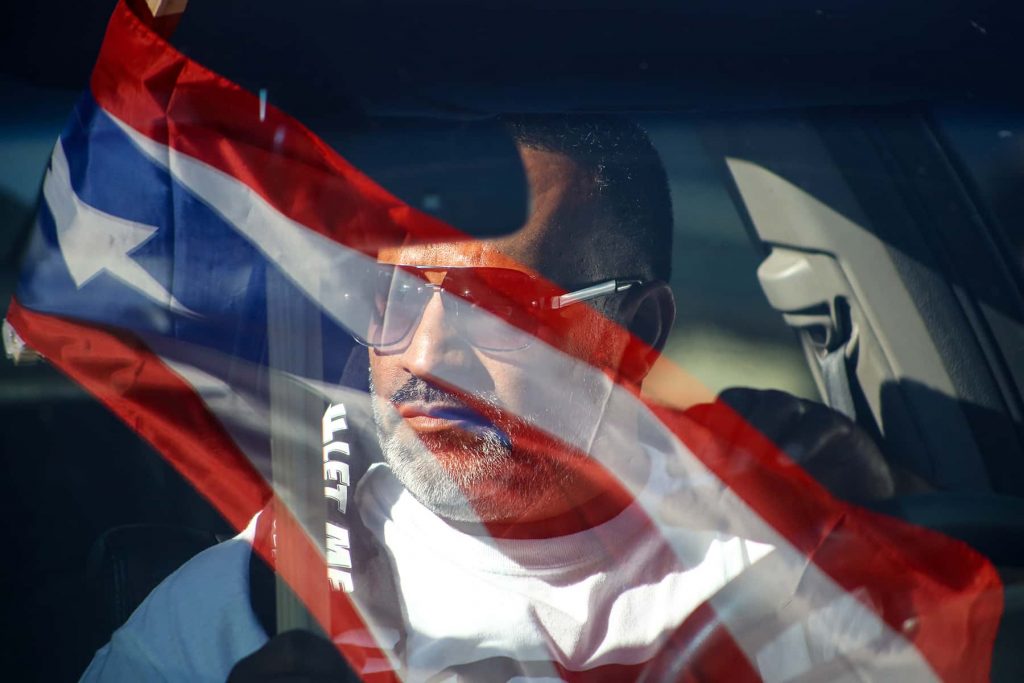
This explainer series, Catholic Doctrine on Immigration, explores how the teaching of faith and Scriptures intersect with immigration policy, focusing on the role of Milwaukee’s Catholic Church in responding to enforcement, labor dynamics, and family separation. Through detailed reporting across legal, economic, and pastoral contexts by Milwaukee Independent staff members, the series examines how Church teaching shapes institutional action and informs the Church’s engagement on national immigration issues. mkeind.com/catholicimmigration
Across the United States, the debate over undocumented immigration often centers on legality, borders, and enforcement. What’s frequently ignored is the foundational role undocumented workers play in the nation’s economy, and perhaps nowhere is that more evident than in the labor markets of Wisconsin.
In Wisconsin, immigrant labor is not marginal. It is essential. From dairy farms to hospitals to construction sites, the state’s economy is powered in no small part by individuals who lack legal status but contribute through grueling, often invisible work. Federal immigration policy remains gridlocked, but the state-level impact is immediate, measurable, and ongoing.
One of the clearest indicators of this reliance is Wisconsin’s agricultural sector, particularly the dairy industry. According to the data provided in the 2025 Dairy Herd Management report cited in state advocacy materials, over half of all dairy labor in Wisconsin is performed by immigrant workers.
These laborers contribute to the production of roughly 79% of the U.S. milk supply. Without them, the entire supply chain — from milking operations to transportation logistics — would face collapse. In addition, the reliance on immigrant labor in Wisconsin reflects national trends across essential industries. Immigrants fill over 25% of agricultural jobs and make up significant portions of the national workforce in construction, STEM, health care, and personal care.
But in Wisconsin, this dependence is amplified by a pronounced labor shortage. The U.S. Bureau of Labor Statistics reported in 2025 that the state had only 0.6 unemployed individuals for every available job opening, a 40% labor gap. In this environment, the contributions of undocumented workers are not supplemental. They are irreplaceable.
The role of immigrant labor extends beyond farms and factories. Undocumented workers are embedded in the infrastructure of urban economies, including Milwaukee. While the broader debate often flattens immigration into rural or border-state contexts, cities like Milwaukee depend on immigrant labor for everything from residential construction to long-term care.
While the Archdiocese of Milwaukee’s documentation does not quantify Milwaukee-specific percentages for each industry, its data confirms a significant local footprint. It is one where Catholic institutions have tracked the presence, vulnerability, and contributions of undocumented individuals for years.
These contributions are not just economic. They are deeply human. Immigrant workers are parents, caretakers, community members, and parishioners. They participate in local economies, schools, and faith communities — all while living under the constant pressure of legal uncertainty. The system allows them to labor, but denies them stability. It benefits from their productivity while denying recognition of their presence.
Despite their centrality to the economy, undocumented workers are treated as disposable within the legal framework. They contribute billions in taxes — including payroll, Social Security, and Medicare — yet remain barred from the very benefits they help fund.
According to data compiled in state presentations sourced from the Institute of Taxation and Economic Policy, undocumented immigrants paid nearly $97 billion in federal, state, and local taxes in 2022 alone. That includes more than $25 billion toward Social Security, a system from which they will never legally draw benefits.
In Wisconsin, these tax contributions are paired with visible labor and invisible status. The contradiction plays out in every industry where immigrant workers are present but unprotected. Milwaukee’s Catholic community has addressed this directly, not through abstraction but through diocesan ministries that provide legal aid referrals, family protection workshops, and community education. These programs, coordinated in part by the Archdiocese of Milwaukee, have grown in urgency as national enforcement expands while federal reform stagnates.
For policymakers, the reality is clear even if politically inconvenient. The labor crisis in Wisconsin is not a projection. It is a persistent fact, documented in government and private sector data. Undocumented workers are already here, already working, and already supporting the systems that benefit all residents. Calls to remove them from the workforce or restrict their access to local services are not only morally flawed but economically suicidal for key state industries.
In the absence of immigration reform, the workforce that sustains Wisconsin’s infrastructure is placed in a legal and ethical limbo. Undocumented workers risk deportation for driving to work, seeking health care, or accessing resources for their children. Employers in sectors like dairy and elder care face a legal paradox. They depend on undocumented labor to meet basic staffing needs, yet operate in an environment where acknowledging that reliance invites federal scrutiny.
The cost of this dysfunction is borne by everyone. When farms close due to labor shortages, supply chains contract. When health care providers cannot hire support staff, patients suffer. When job openings outpace available workers, local economies stagnate. This is not theoretical. The not-so-slow erosion is already underway, with Milwaukee’s immigrant communities caught in the crossfire between political posturing and structural necessity.
The Church’s message, reflected in both doctrine and local advocacy, is that these workers are not a shadow population. They are part of the body politic — contributing, suffering, persevering. Ignoring their status does not make their labor less essential. Denying their presence does not make their absence possible.
Any serious conversation about the future of Wisconsin’s economy must begin with an honest acknowledgment. Undocumented workers are not the exception. They are the financial engine.














